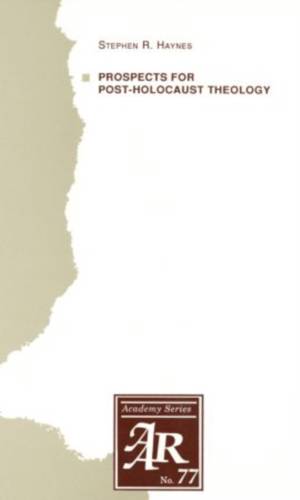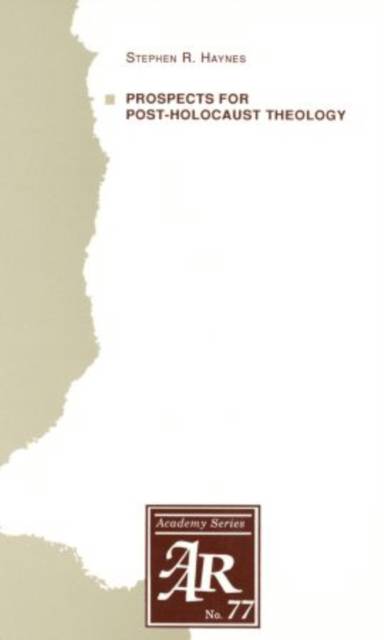
- Afhalen na 1 uur in een winkel met voorraad
- Gratis thuislevering in België vanaf € 30
- Ruim aanbod met 7 miljoen producten
- Afhalen na 1 uur in een winkel met voorraad
- Gratis thuislevering in België vanaf € 30
- Ruim aanbod met 7 miljoen producten
Zoeken
€ 67,95
+ 135 punten
Omschrijving
This work examines the significance of "Israel" for Christianity in the pre-Holocaust theology of Karl Barth, and the post-holocaust theologies developed by Jurgen Moltmann and Paul van Buren. Concluding that Barth's "radical traditionalism" is an unsuitable basis for developing a post-Holocaust theology, the author turns to more promising work expressed by the "messianic theology" of Moltmann and the "radical theology" of van Buren. The book then distinguishes the work of Moltmann and van Buren from the work known as Holocaust theology, and places their work in the light of both the Reformed tradition and the revision of Christian doctrine after Auschwitz. The study concludes by discussing both the resources and obstacles facing post-Holocaust Christian theology.
Specificaties
Betrokkenen
- Auteur(s):
- Uitgeverij:
Inhoud
- Aantal bladzijden:
- 320
- Taal:
- Engels
- Reeks:
- Reeksnummer:
- nr. 77
Eigenschappen
- Productcode (EAN):
- 9781555406523
- Verschijningsdatum:
- 2/10/1991
- Uitvoering:
- Paperback
- Formaat:
- Trade paperback (VS)
- Afmetingen:
- 163 mm x 215 mm
- Gewicht:
- 381 g

Alleen bij Standaard Boekhandel
+ 135 punten op je klantenkaart van Standaard Boekhandel
Beoordelingen
We publiceren alleen reviews die voldoen aan de voorwaarden voor reviews. Bekijk onze voorwaarden voor reviews.








